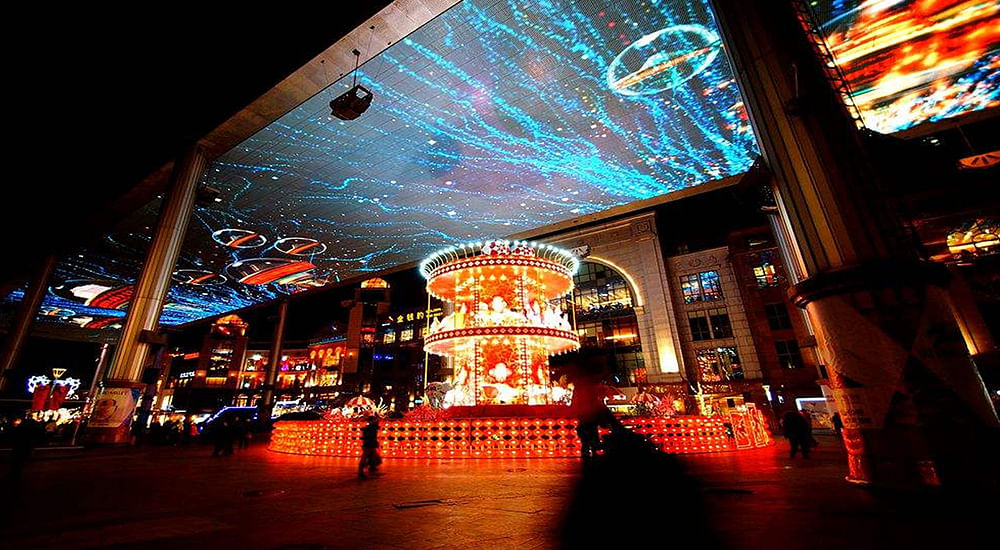200m suspended LED screen, South-east Asia's largest, to be built in Singapore


SINGAPORE - The Republic will be home to the largest interactive, suspended LED sky screen in South-east Asia, which can broadcast live sporting events and concerts, among others.
Modelled after the Shimao Tianjie Sky Screen in Beijing, China, the screen, whose location is yet to be disclosed, is set to be 200m long. Some $200 million will be pumped into building it.
Beijing's Sky Screen, which stretches above a pedestrian walkway at mixed-use development The Place, is 250m long and 30m wide, and comprises 7,500sq m of LED lights, as well as several sound systems. It was built in 2006 but has been upgraded over the years.
Singapore's equivalent will be built by Chinese property management and media company The Place Holdings, which signed a definitive agreement on Wednesday (June 29), with Stellar Lifestyle, which manages retail and advertising space in Singapore's MRT network.
"The location is still being finalised, but once that is done, it will take about one to 1½ years to be constructed," said Mr Fan Xianyong, chief executive of The Place Holdings, speaking to the media before the signing of the agreement at the Sands Expo and Convention Centre.

Mr Fan added that the sky screen here will be an enhanced version of Beijing's one, and hopes it will serve as a catalyst for new tourism and retail experiences in Singapore.
Besides the sky screen, the two firms' collaboration covers the development of various platforms, including a digital and advertising platform, and a last-mile service platform, which will transport merchandise from the nearest distribution hub to the final destination, such as a home or business.
The digital platform, in particular, will integrate technological infrastructure such as artificial intelligence and big data.
Mr Ji Zenghe, executive chairman of The Place Holdings, said: "We share the same vision (as Stellar Lifestyle) of utilising new technology advancements and infrastructure to improve the quality of our lives and enabling SMEs (small and medium-sized enterprises) to integrate into modern business models with new digitalisation capabilities."
[embed]https://www.youtube.com/watch?v=pARpfZqGsJQ[/embed]
Mr Seah Moon Ming, chairman of SMRT Corporation, said it is jointly developing interactive media solutions and innovative business offerings with The Place Holdings.
"We look forward to seeing the enlivened stations and surrounding neighbourhoods that will connect better with commuters and communities," added Mr Seah.
Tourism experts like Dr Michael Chiam said such an attraction will benefit Singapore as it provides an additional offering for tourists to explore.
The senior lecturer in tourism at Ngee Ann Polytechnic said its proposed location will also be important.
[[nid:579817]]
"If it can be incorporated into an existing place in Orchard Road, it could certainly help to rejuvenate that area," said Dr Chiam, who added that the content on the sky screen must be relevant to Singapore, and there will need to be an element of fun and excitement for the target audience.
"The stakeholders will have to work with the relevant authorities, such as the Urban Redevelopment Authority and Building and Construction Authority, to ensure that the project meets all guidelines and regulations," he said.
While Singapore is the first city outside China to have a sky screen built by The Place Holdings, The Place Holdings said it also aims to scale and replicate its screens in 10 major cities around the world.
The screens will have capabilities such as screening live concerts simultaneously, and eventually, the gamification of the platform for the metaverse.
This article was first published in The Straits Times. Permission required for reproduction.